Your search “Keep%20the%20death%20penalty%abolished%20in%20the%20ePhilippfines%20e%20e%20e%20e%20e%20e%20e%20e%20e%20e/page/com16501.content.olc.org/com/ref/collection/criminal/did/154 ”
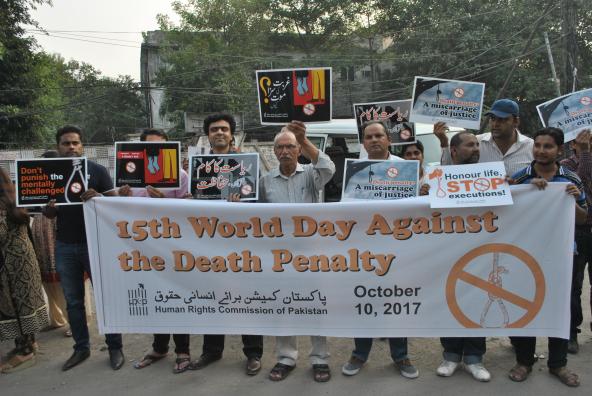
Article(s)
Abolitionists fight against the abusive use of the death penalty
By Thalia Gerzso, on 28 November 2017
In October 2017, Pakistan has agreed to initiate efforts to narrow down the scope of the death penalty. This first step is the result of a strong mobilization from Pakistani and international organizations, in particular during World Day.
2017
Pakistan
Public Opinion
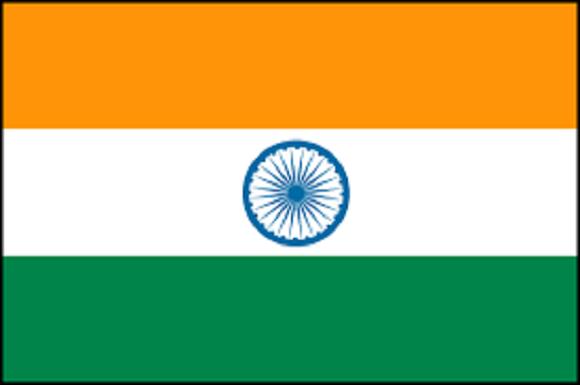
Article(s)
Death Penalty in India in 2017
By National Law University, Delhi, center of the death penalty, on 26 March 2018
A report describing the use of the death penalty in India in 2017 in comparison with 2016 was recently released by the National Law University’s Death Penalty Research Project (based in New Delhi).
2018
India

Article(s)
UN High Level Panel on the Death Penalty and Deterrence
By Grace O'Connor, on 25 February 2021
The UN Biennial High Level Panel on the Death penalty focused on the deterrent effect capital punishment has on crime. Representatives from member states, NGOs and NHRIs made statements to the high level panel discussing the deterrent theory.
2021
Public Opinion
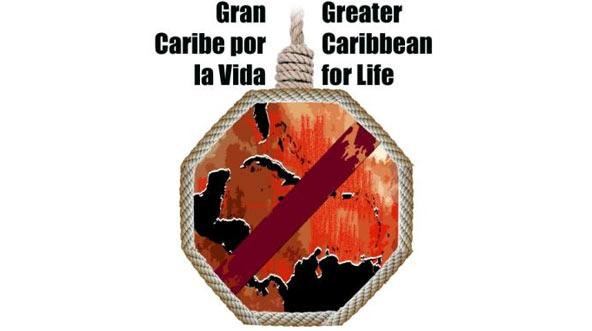
Article(s)
Caribbean Conference – The Death Penalty in the Context of Public Security: Neither Right, Nor Effective
By Greater Caribbean For Life, on 9 September 2013
To celebrate the 11th World Day Against the Death Penalty dedicated to the Greater Caribbean, a regional conference is organised by local civil society in Trinidad and Tobago on October, 1st.
2013
Public Opinion

Article(s)
Women sentenced to death: An invisible reality
By Advocates for Human Rights, International Federation of ACAT (Action by Christians for the Abolition of Torture), International Harm Reduction Association (IHRA), non-governmental organizations in special consultative status, on 4 August 2021
The World Coalition Against the Death Penalty and supporting member organizations welcome the annual full-day meeting to discuss the human rights of women under resolution 6/30.
2021
Drug Offenses
Fair Trial
Women
Article(s)
Abolition on the agenda of the National Assembly in DR Congo
on 6 November 2010
The death penalty issue is back on the parliamentary agenda in the Democratic Republic of Congo thanks to a legislative sequence welcomed by local abolitionists.
2010
Democratic Republic of the Congo
Member(s)
Mêmes droits pour tous (MDT)
on 30 April 2020
Les Mêmes Droits pour Tous (MDT) is a Guinean organization from the civil society. It has been created by Order No. 3242/MATD/CAB/SACCO of 26 May 2006. Since then, MDT has been actively involved in the defence and promotion of human rights in Guinea. MDT specializes in the field of criminal justice. To date, MDT acts in […]
2020
Guinea

Article(s)
Progressing towards abolition in East Africa
on 7 August 2011
On 24-27 July, 2011, World Coalition members Penal Reform International (PRI), Foundation for Human Rights Initiative (FHRI) and the International Commission of Jurists-Kenya section (ICJ), jointly hosted a regional roundtable on “Death Penalty in East Africa: Challenges, Strategies and Comparative Jurisprudence”, with the Judicial Studies Institute (JSI) in Nairobi, Kenya.
2011
Death Row Conditions
Fair Trial
Kenya
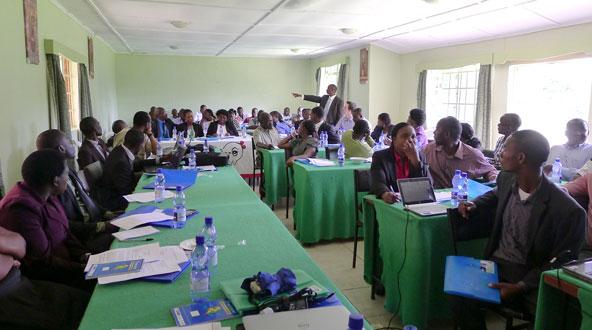
Article(s)
Mental health seminar takes Malawi a step closer to resentencings
By Emile Carreau, on 28 January 2015
The Malawi Human Rights Commission (MHRC) held a two-day seminar on mental health evaluations in preparation for the resentencing of nearly 200 individuals after their mandatory death sentences were deemed unconstitutional.
2015
Malawi
Malawi
Mental Illness
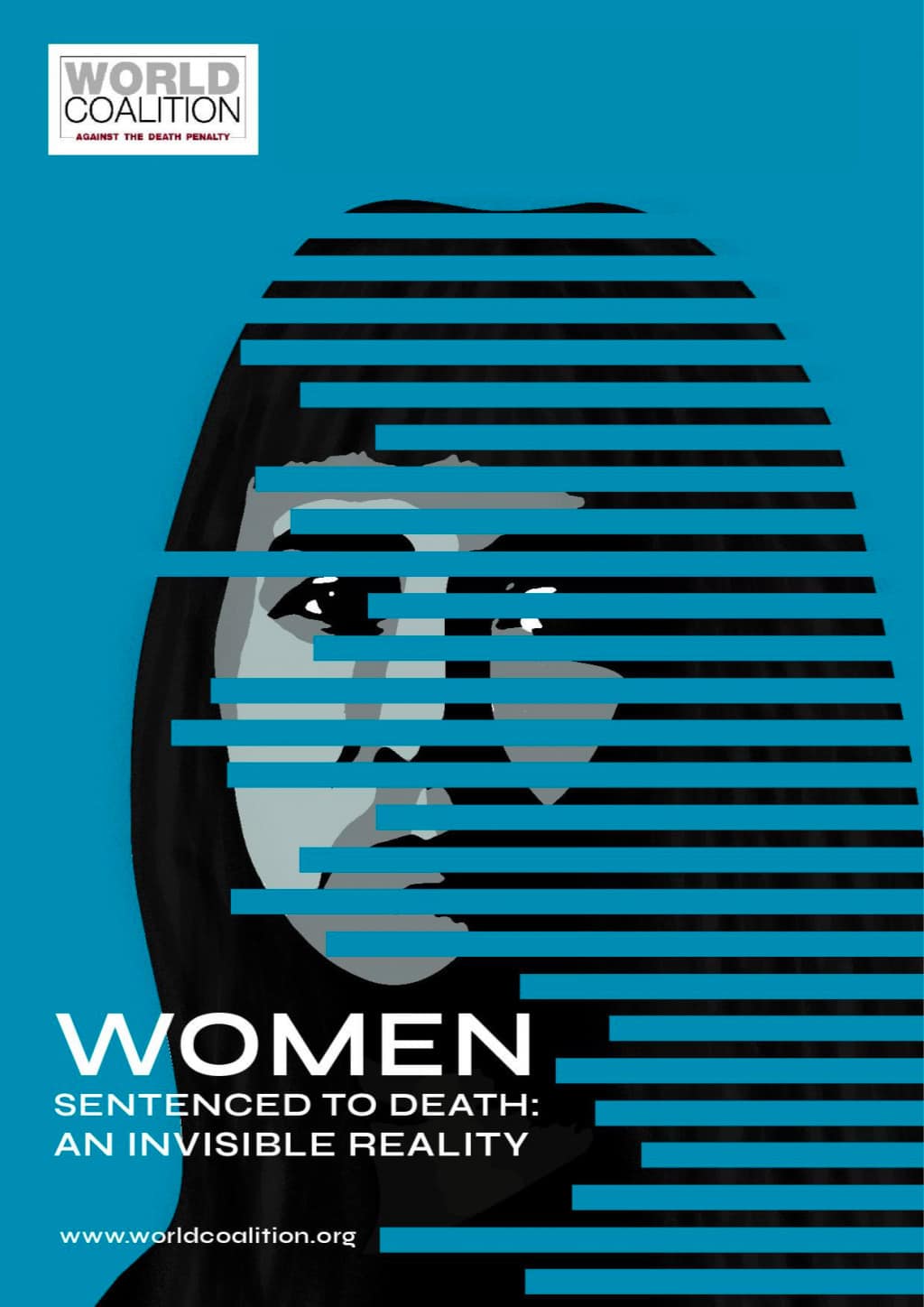
Making gender discrimination in capital punishment visible
on 6 March 2023
Understanding the link between gender discrimination and the death penalty – Women and the death penalty – Gender and sexual minorities and the death penalty Gender and the Death Penalty at the World Coalition – Strengthen the capacity of civil society organizations – Strengthen links with women’s, gender and sexual minority rights movements and organizations […]
2023
Gender
Women
Article(s)
Abolitionists block Nigerian executions
on 9 July 2010
Legal action by local activists and pressure from international organizations have succeeded in stopping plans by Nigeria’s authorities to execute hundreds of death row inmates.
2010
Fair Trial
Innocence
Legal Representation
Moratorium
Nigeria
Nigeria
Terrorism
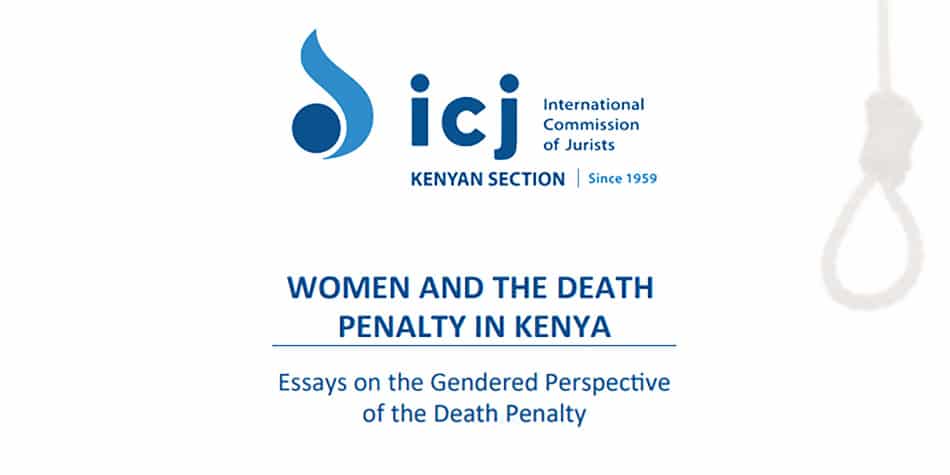
Article(s)
ICJ Kenya Makes Gender Discrimination in Capital Punishment Visible
By World coalition against the death penalty, on 8 March 2024
Kenya is one of a few target countries for the World Coalition Against the Death Penalty’s “Gender and the Death Penalty” campaign; a campaign that is being conducted in collaboration with its member organisations in the country, namely the Kenyan Section of the International Commission of Jurists (ICJ Kenya) and the Kenya Human Rights Commission.
2024
Gender
Gender
Kenya
Kenya
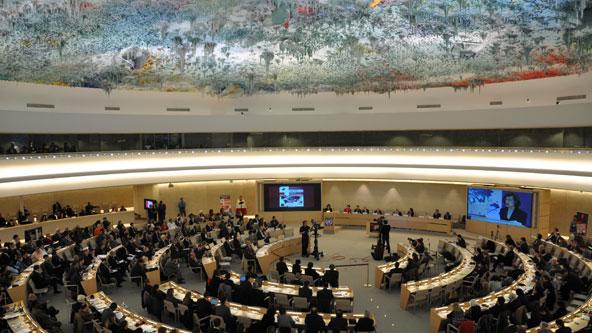
Article(s)
Discussing the Death Penalty for Drug Crimes at the Human Rights Council
By Elisa Bellotti, on 30 September 2015
The Advocates for Human Rights and Together against the Death Penalty (ECPM), in partnership with other members of the World Coalition, organized a Round Table on the issue of the death penalty for drug-related crimes. The event took place during the 30th Session of the UN Human Rights Council, on September 28, 2015.
2015
Drug Offenses
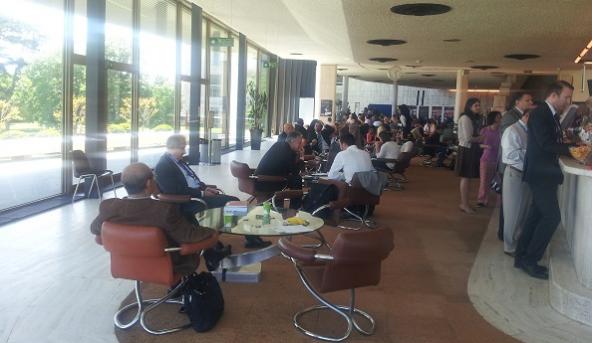
Article(s)
Abolitionist NGOs lobby to educate UN member states in Geneva
By Aurélie Plaçais, on 22 April 2015
Several World Coalition members carried out intense advocacy activities during and after the March session of the Human Rights Council to prepare for the coming UPR session, during which Liberia, Malawi and the USA will be examined.
2015
Article(s)
A World Without the Death Penalty – IX Congress of the Ministers of Justice
By Federica Merenda, on 29 February 2016
On 22 February 2016, the representatives of more than twenty countries gathered in Rome for the 9th International Congress of the Ministers of Justice « A World without the death penalty », organized by the Community of Sant’Egidio and hosted by the Italian Chamber of Deputies. Burundi, Cambodia, Central African Republic, Congo, El Salvador, Guinea Conakry, Cȏte d’Ivoire, Mali, Mongolia, Rwanda, Somalia, Sri Lanka, South Africa, Timor-Leste, Togo, Uganda, Viet Nam, Zimbabwe are the countries who joined Italy in the last edition of this annual conference.
2016
Document(s)
Extrajudicial, summary or arbitrary executions
By United Nations General Assembly, on 5 August 2022
2022
United Nations report
More details See the document
To mark the fortieth anniversary of the establishment of the mandate on extrajudicial, summary or arbitrary executions, the Special Rapporteur on extrajudicial, summary or arbitrary executions, Morris Tidball-Binz, offers a reflection from a historical perspective on the establishment of the mandate and the subsequent evolution of its working methods. He retraces the development of international standards and guidelines elaborated with the substantial contribution and support of the various mandate holders. The report also contains an analysis of the question of the death penalty from the perspective of whether it is compatible with the absolute prohibition of torture or other cruel, inhuman or degrading treatment or punishment and recommendations aimed at ensuring the protection of the right to life, as guaranteed under international human rights instruments.
- Document type United Nations report
Document(s)
Leaflet Lobbying
By World Coalition against the death penalty , on 10 October 2007
2007
Campaigning
Trend Towards Abolition
frMore details See the document
Leaflet Lobbying
- Document type Campaigning
- Themes list Trend Towards Abolition
- Available languages Brochure Lobbying 2007
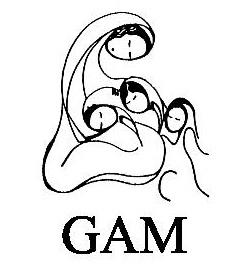
Member(s)
Grupo de Apoyo Mutuo (GAM)
on 30 April 2020
Mandate and goals: Organization of relatives of missing persons illegally detained which works for justice, investigating past cases, opening legal proceedings against the national system and the human rights system. Kind of actions: We work for justice, for the strengthening of the institutions linked to the criminal investigation and against the death penalty. Actions aiming […]
2020
Guatemala
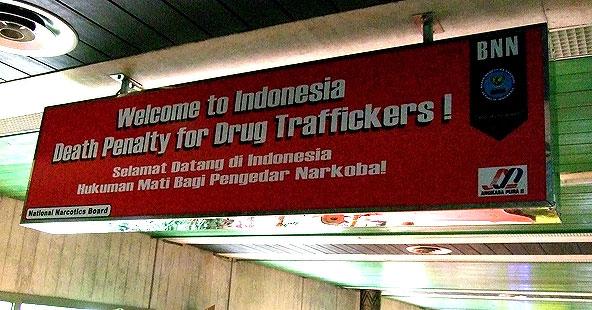
Article(s)
Indonesia: execution for drug crimes is no solution
By World Coalition Against the Death Penalty, on 26 January 2015
In an open letter, the World Coalition and its members, including KONTRAS and Amnesty International, condemn the Indonesian government’s politicizing of the death penalty to show its commitment to eradicating drug-related crimes. Recent resumptions of executions show one thing, they are carried out for political reasons only: in Pakistan to show that it is tough on terrorism, Jordan that it tough on crime and Indonesia that it is tough on drugs. Instead, those states should abolish the death penalty to show their commitment to upholding human rights. The next World Day against the Death Penalty will be dedicated to the issue of capital drug crimes.
2015
Drug Offenses
Indonesia
Article(s)
World Coalition hands 5 million signatures over to the UN
on 1 November 2007
The President of UN General Assembly is to receive 5 million signatures calling for a moratorium on executions collected worldwide by the Community of Sant’Egidio and the World Coalition Against the Death Penalty.
2007
Albania
Angola
Brazil
Croatia
Gabon
Mexico
Moratorium
New Zealand
Philippines
Portugal
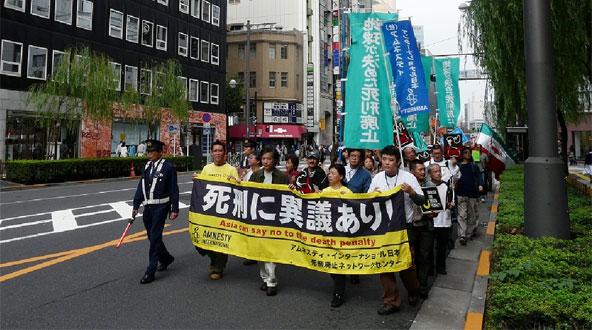
Article(s)
10.10.10 Looking back on the World Day in Asia
on 3 December 2010
The Anti-Death Penalty Asia Network rounds up reports from the main events organised across the Asia-Pacific region for World Day Against the Death Penalty on October 10.
2010
Australia
Bangladesh
India
Indonesia
Iran (Islamic Republic of)
Italy
Japan
Pakistan
Singapore
Terrorism
United States
cropped-favicon.png
on 26 April 2021
https://worldcoalition.org/wp-content/uploads/2021/04/cropped-favicon.png
2021
Article(s)
Website Redesign and Development
By World Coalition Against the Death Penalty, on 15 January 2020
The World Coalition Against the Death Penalty’s office in Paris area, France, is currently calling for web development and makeover tenders.
The objective is to award a contract to develop and maintain the World Coalition Against the Death Penalty’s new website, based on technical specifications.
2020

Member(s)
American Friends Service Committee
on 30 April 2020
The American Friends Service Committee (AFSC) carries out service, development, social justice and peace programs throughout the world. It was founded by Quakers during World War 1 to provide conscientious objectors with an opportunity to aid civilian war victims. The AFSC’s work is based on the Quaker belief in the worth of every person, and […]
2020
United States
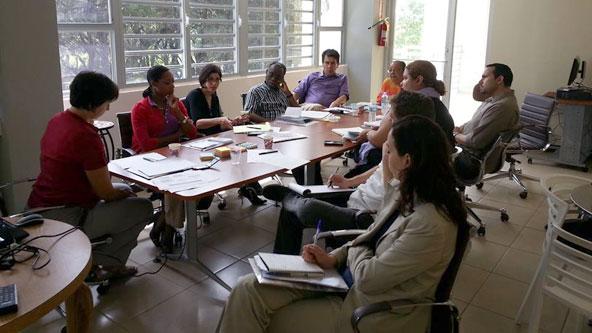
Article(s)
Caribbean network fleshes out plans for abolition
By Emile Carreau, on 16 January 2014
The Executive Committee of the Greater Caribbean for Life (GCL) network, constituted in October 2013, met in San Juan, Puerto Rico on January 11 and 12 to devise strategies to combat the death penalty in the region.
2014
Moratorium
Trinidad and Tobago
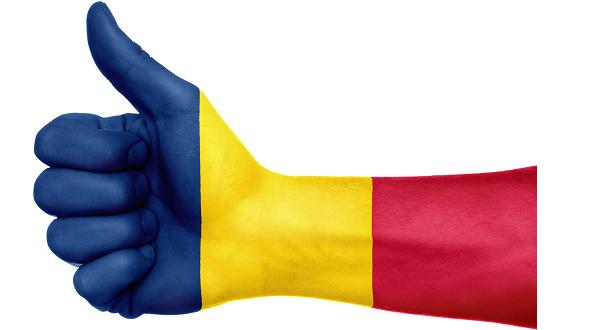
Article(s)
Abolition of the death penalty for terrorism in Chad
By FIACAT, on 30 April 2020
On 28 April 2020, the Chadian National Assembly unanimously voted to abolish the death penalty for crimes of terrorism.
2020
Chad

Article(s)
Zambia is the 25th African State to Abolish the Death Penalty
By Bronwyn Dudley, World Coalition Against the Death Penalty, on 6 January 2023
On 23 December 2022, Zambian President Hakainde Hichilema signed into law Penal Code (Amendment) Bill number 25, which bans the death penalty and the offence of criminal defamation of the president.
2023
Zambia
Article(s)
Project officer – The Death Penalty Project
By The Death Penalty Project, on 23 January 2018
The Death Penalty Project is recruiting a Project Officer.
2018
United Kingdom
Article(s)
Country-by-country death penalty data now available
By Center for International Human Rights at Northwestern University School of Law, on 19 April 2011
A new statistic and legal database designed by Northwestern University in partnership with the World Coalition offers a unique view of the use of capital punishment in more than 90 states.
2011
Document(s)
FACTS AND FIGURES LGBTQIA+ People and the Death Penalty – 21st World Day Against the Death Penalty
By World coalition against the death penalty, on 15 August 2023
2023
World Coalition
Gender
frMore details Download [ pdf - 502 Ko ]
- Document type World Coalition
- Themes list Gender
- Available languages Faits et chiffres Les personnes LGBTQIA+ et la peine de mort - 21e journée mondiale contre la peine de mort
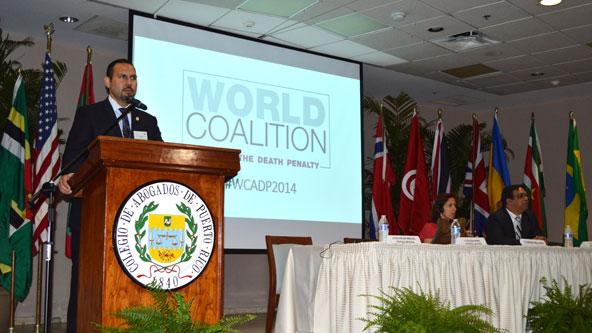
Article(s)
AGM focuses on mental health and progress in the Caribbean
By Inès Oulmokhtar, on 16 May 2014
The World Coalition is holding its General Assembly between 20-22 June in San Juan, Puerto Rico and invites the public to take part in the event.
2014
Puerto Rico
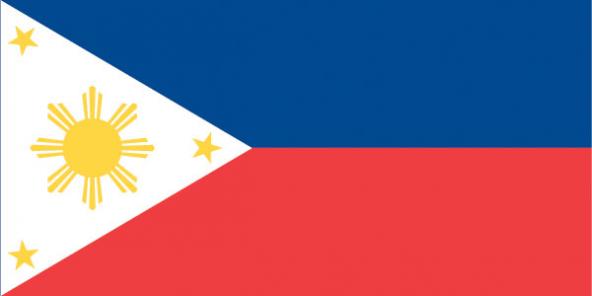
Article(s)
Call for actions on World Day in the Philippines
By World Coalition Against the Death Penalty, on 1 July 2020
The World Coalition Against the Death Penalty and its 14 international member organizations active in the Philippines, the Maldives and Turkey are part of a joint project which aims to combat the resurgence of the death penalty, particularly in the aforementioned three countries at risk.
2020
Philippines
Article(s)
Call for actions in Barbados and Eastern Caribbean
By Greater Caribbean For Life and World Coalition Against the Death Penalty, on 10 July 2018
As part of a joint project which aims to create a platform for death penalty reform in Barbados and the Eastern Caribbean, the Greater Caribbean For Life (GCL) and the World Coalition are lanching a call for actions.
2018
Barbados
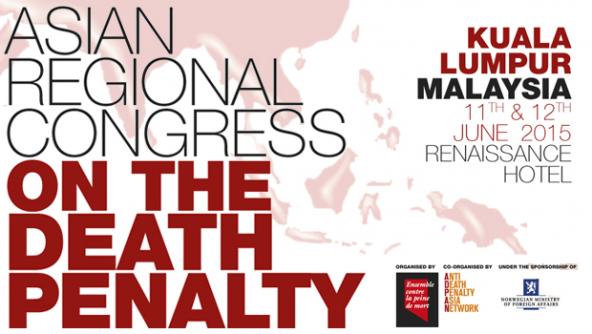
Article(s)
Worldwide abolitionists to focus on South-East Asia
By World Coalition Against the Death Penalty, on 30 April 2015
The next general assembly of the World Coalition will take place on Saturday 13 June 2015 in Kuala Lumpur, Malaysia, following the Regional Congress against the Death Penalty organised by ECPM in partnership with ADPAN on 11-12 June 2015.
2015
Malaysia
Article(s)
Program and Admin Assistant
By World Coalition Against the Death Penalty, on 5 January 2017
The World Coalition Against the Death Penalty recruits interns twice a year for a period of 6 months (from March to August and from September to February).
2017
Article(s)
WANTED: Program and Admin Assistant
By World Coalition Against the Death Penalty, on 19 August 2016
The World Coalition Against the Death Penalty is looking for an intern for a period of 6 months, starting mid-September.
2016
Article(s)
Call for actions on World Day in the Maldives and Turkey
By World Coalition Against the Death Penalty, on 17 June 2020
The World Coalition Against the Death Penalty and its 14 international member organizations active in the Philippines, the Maldives and Turkey are part of a joint project which aims to combat the resurgence of the death penalty, particularly in the aforementioned three countries at risk.
2020
Maldives
Turkey
Article(s)
Call for actions on World Day in Sub-Saharan Africa 2
By World Coalition Against the Death Penalty, on 17 June 2020
The World Coalition Against the Death Penalty (World Coalition) and FIACAT are part of a joint project which aims to contribute to the abolition of the death penalty in Sub-Saharan Africa.
Burkina Faso
Burundi
Cameroon
Congo
Côte d'Ivoire
Democratic Republic of the Congo
Ghana
Guinea
Kenya
Liberia
Mauritania
Niger
Senegal
Sierra Leone
Togo
United Republic of Tanzania
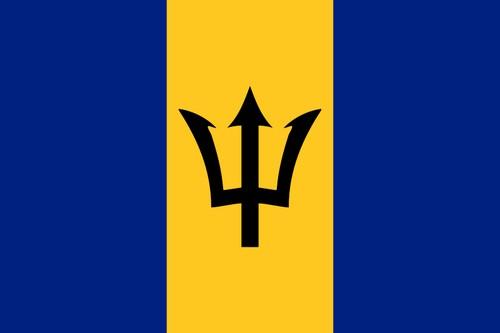
Article(s)
Call for actions on World Day in Barbados and the Eastern Caribbean States
By World Coalition Against the Death Penalty, on 1 July 2020
The Greater Caribbean For Life (GCL) and the World Coalition Against the Death Penalty are part of a joint project, led by The Death Penalty Project and funded by the European Union, which aims to create a platform for death penalty reform in Barbados and the Eastern Caribbean, leading to eventual abolition
2020
Barbados
Document(s)
Initiatives World Day 2004
By World Coalition against the death penalty , on 10 October 2004
2004
Campaigning
Trend Towards Abolition
frMore details See the document
Initiatives World Day 2004
- Document type Campaigning
- Themes list Trend Towards Abolition
- Available languages Initiatives journée mondiale 2004
Document(s)
Report of the Secretary General: Question of the death penalty 2021 (A/HRC/48/29)
By Office of the High Commissioner for Human Rights (OHCHR), on 15 September 2021
2021
United Nations report
Public Opinion
More details See the document
The present report is submitted pursuant to decision 18/117 and resolution 42/24 of the Human Rights Council. The report focuses on consequences arising from the lack of transparency in the application and imposition of the death penalty on the enjoyment of human rights.
- Document type United Nations report
- Themes list Public Opinion
Document(s)
A/HRC/48/L.17/Rev.1 Resolution adopted by the Human Rights Council
on 2 June 2021
2021
International law - United Nations
aresfrruzh-hantMore details See the document
- Document type International law - United Nations
- Available languages A/HRC/48/L.17/Rev.1 قرار اعتمده جملس حقوق اإلنسايفA/HRC/48/L.17/Rev.1 Resolución aprobada por el Consejo de DerechosA/HRC/48/L.17/Rev.1 Résolution adoptée par le Conseil des droits de l’hommeA/HRC/48/L.17/Rev.1 Резолюция, принятая Советом по правам человекаA/HRC/48/L.17/Rev.1 人权理事会 月 日通过的决议

Member(s)
Coalition of Somali Human Rights Defenders CSHRD
on 24 July 2024
The Coalition of Somali Human Rights Defenders (CSHRD) is an organization dedicated to promoting and protecting human rights in Somalia. CSHRD was established in 2014. CSHRD runs holistic and comprehensive torture victims rehabilitation centre in Somalia. CSHRD work is guided by the Universal Declaration of Human Rights UDHR and the SDGs of 1, 5, 10, […]
2024
Somalia

Member(s)
Association Justice et Miséricorde (AJEM)
on 30 April 2020
The Association Justice and Mercy (AJEM) is a Lebanese nonprofit, nonpolitical and nonsectarian nongovernmental organization (NGO) created in 1996 at the initiative of a group of social workers. AJEM deals mainly with the right of prisoners in Lebanon, and more generally with human rights, the fight against torture and other cruel, inhuman and degrading treatment, […]
2020
Lebanon
Document(s)
Anti–Death Penalty Advocacy: A Lawyer’s View from Australia
By Julian McMahon SC, on 1 September 2022
2022
Article
Australia
More details See the document
This article reviews the executions of Australians in the region and the Australian responses over the past two decades. Informed by the author’s legal defence role in death penalty cases in Singapore and Indonesia and other countries, the article explores developments in anti–death penalty advocacy since 2015: the parliamentary enquiry, the ‘whole of government’ strategy led by the Department of Foreign Affairs and Trade and the efforts made by Australia and Australians in Asia.
This article was first published in Crime Justice Journal: https://www.crimejusticejournal.com/issue/view/119
- Document type Article
- Countries list Australia

Member(s)
Youth Safety Awareness Initiative (Crime Si Poa®)
on 27 March 2024
Youth Safety Awareness Initiative mission is to promote social justice and a crime-free society through education, advocacy and social enterprise, targeting children and young people. Youth Safety Awareness Initiative primarily focus on discouraging at-risk and vulnerable youth from engaging in criminal activities and addressing threats to peace through behavioral and attitudinal change, while promoting the […]
2024
Kenya
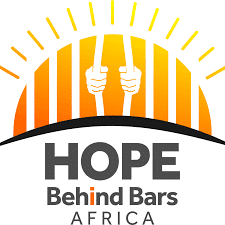
Member(s)
Hope Behind Bars Africa
on 5 September 2023
Hope Behind Bars Africa provides free legal services and direct support to indigent individuals in contact with the justice system while promoting criminal justice reforms through research, evidence-based advocacy, and technology.
2023
Nigeria

Member(s)
Witness to Innocence
on 30 April 2020
The mission of Witness to Innocence (WTI) is to unite U.S. exonerated death row survivors and their loved ones to become a powerful force for social justice and transformation. WTI seeks to abolish the death penalty, to reform the U.S. criminal justice system to prevent wrongful convictions, and to secure fair financial compensation and social […]
2020
United States
Member(s)
Center for Constitutional Rights
on 30 April 2020
Center for Constitutional Rights is an American NGO based in New York. The Center for Constitutional Rights is committed to fighting injustice on many fronts, as demonstrated by the breadth of our cases as well as our organizing work. CCR works on a wide range of issues: illegal surveillance and attacks on dissent, Criminal Justice […]
United States

Member(s)
European Saudi Organization for Human Rights (ESOHR)
on 29 November 2023
Founded in 2013 in response to extensive human rights abuses in Saudi Arabia, European Saudi Organization for Human Rights (ESOHR), which is based in Berlin, emerged in the face of a robust campaign aimed at suppressing civil society and curtailing the activities of human rights advocates. ESOHR is committed to the abolition of the death […]
2023
Saudi Arabia
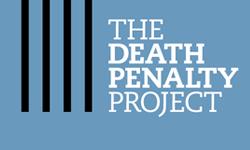
Member(s)
The Death Penalty Project (DPP)
on 30 April 2020
The Death Penalty Project is an international legal action charity, based in London, working to promote and protect the human rights of those facing the death penalty. We provide free legal representation to death row prisoners around the world, with a focus on Commonwealth countries, to highlight miscarriages of justice and breaches of human rights. […]
2020
United Kingdom
Member(s)
Legal Defence & Assistance Project (LEDAP)
on 30 April 2020
LEDAP – Legal Defence & Assistance Project provides legal aid to victims of human rights violations, campaign for abolition of the death penalty in Nigeria, documentation of unlawful killings in Nigeria, support to torture survivors, domestic violence support to victims, legislative advocacy on criminal justice, gender violence, human rights. LEDAP is a member of the […]
Nigeria
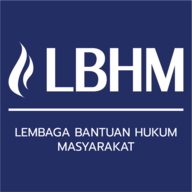
Member(s)
LBH Masyarakat (Community Legal Aid Institute)
on 5 May 2021
LBH Masyarakat (Community Legal Aid Institute) is a collective of individuals who believe that every human has potential to actively participate in legal aid, to uphold justice, and to contribute to the protection of human rights. LBH Masyarakat believes in equality, non-discrimination, and acknowledgement of inherent human dignity. LBH Masyarakat defends the right of every […]
2021
Indonesia

Member(s)
Equal Justice USA
on 30 April 2020
Equal Justice USA, founded in 1990, is a national organization that works to transform the justice system by promoting responses to violence that break cycles of trauma. We work at the intersection of criminal justice, public health, and racial justice to elevate healing over retribution, meet the needs of survivors, advance racial equity, and build […]
2020
United States
Document(s)
Ripoti Ya Kimataifa Ya Amnesty International Hukumu Za Kifo Na Watu Walionyongwa 2022
By Amnesty International, on 16 May 2023
2023
NGO report
More details See the document
Utafiti wa Amnesty International kuhusu matumizi ya adhabu ya kifo mwaka wa 2022 ulionyesha kwambakulikuwa na ongezeko kubwa la idadi ya watu wanaojulikana kuwa walinyongwa duniani, likiwemo ongezekokubwa la watu walionyongwa kutokana na makosa yanayohusiana na dawa za kulevya
- Document type NGO report

Member(s)
Reprieve
on 30 April 2020
Reprieve is a small, feisty registered charitable organisation of human rights defenders. Our strategy is to use strategic interventions to end the use of the death penalty globally, and to end extreme human rights abuses carried out in the name of “counterterrorism” or “national security” We work for among the most disenfranchised people in society, […]
2020
United Kingdom
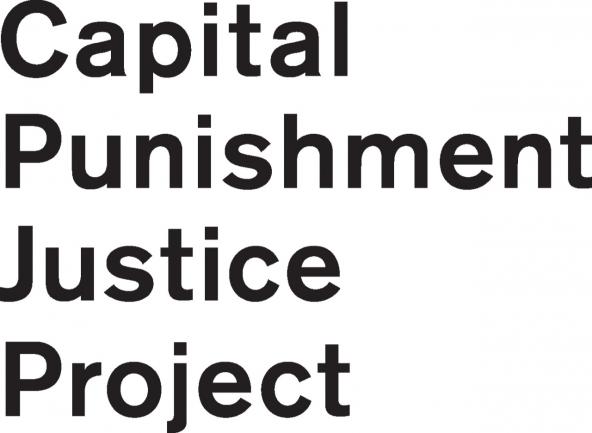
Member(s)
Capital Punishment Justice Project (CPJP)
on 30 April 2020
Capital Punishment Justice Project – CPJP (formerly known as Reprieve Australia) is an Australian NGO working to assist in the provision of effective legal representation and humanitarian assistance to those facing the death penalty at the hands of the State. CPJP also works to raise awareness of the application of the death penalty by the […]
Australia
Document(s)
Testimonies tool – World Day 2022
By the World Coalition Against the Death Penalty, on 28 June 2022
2022
World Coalition
frMore details Download [ pdf - 764 Ko ]
The World Coalition and its members have collected testimonies of victims of torture in the death penalty. Confessions, death row phenomenon, moments before the execution, psychological torture of those not sentenced to death, methods of execution. Read the stories of these victims.
We thank all those who agreed to share their testimonies and their stories.
- Document type World Coalition
- Available languages Outil témoignages - Journée mondiale 2022
Document(s)
Bloodshed and Lies: Mohammed bin Salman’s Kingdom of Executions
By Reprieve UK and European Saudi Organization for Human Rights, on 31 January 2023
2023
NGO report
Saudi Arabia
arMore details See the document
Saudi Arabia is a flagrant abuser of the right to life. Between 2010 and 2021, Saudi Arabia executed at least 1243 people, making it one of the most rampant executioners in the world. As of December 2022, the Saudi regime had executed at least a further 147 people in 2022, including 81 people in one day in a mass execution on 12 March 2022.
Saudi Arabia’s use of the death penalty has drastically increased since 2015. This escalation has taken place on the watch of Saudi Arabia’s King Salman, who acceded the throne on 23 January 2015, and his son, Crown Prince and Prime Minister Mohammed bin Salman. The annual rate of executions has almost doubled since King Salman and Mohammed bin Salman came to power in 2015. From 2010-2014 there was an average of 70.8 executions per year. From 2015-2022 there was an average of 129.5 executions per year – a rise of 82%. The six bloodiest years of executions in Saudi Arabia’s recent history have all occurred under the leadership of Mohammed bin Salman and King Salman (2015, 2016, 2017, 2018, 2019 and 2022).
- Document type NGO report
- Countries list Saudi Arabia
- Available languages سفك الدماء والأكاذيب: مملكة إعدام محمد بن سلمان
Document(s)
European Court for Human Rights cases involving the death penalty
By European Court for Human Rights Press Unit, on 24 June 2022
2022
International law - Regional body
Regional body report
Cruel, Inhuman and Degrading Treatment and Punishment
Death Row Conditions
Fair Trial
More details See the document
“[T]he [European Court of Human Rights] in Öcalan did not exclude that Article 2 [of the European Convention on Human Rights, protecting the right to life,] had already been amended so as to remove the exception permitting the death penalty. Moreover, … the position has evolved since then. All but two of the Member States have now signed Protocol No. 13 [to the Convention, concerning the abolishment of the death penalty in all circumstances,] and all but three of the States which have signed have ratified it. These figures, together with consistent State practice in observing the moratorium on capital punishment, are strongly indicative that Article 2 has been amended so as to prohibit the death penalty in all circumstances. Against this background, the Court does not consider that the wording of the second sentence of Article 2 § 1 continues to act as a bar to its interpreting the words ‘inhuman or degrading treatment or punishment’ in Article 3 [of the Convention, prohibiting torture and inhuman or degrading treatment,] as including the death penalty …” (Al-Saadoon and Mufdhi v. the United Kingdom judgment of 2 March 2010, § 120).
- Document type International law - Regional body / Regional body report
- Themes list Cruel, Inhuman and Degrading Treatment and Punishment / Death Row Conditions / Fair Trial
Document(s)
The politics of capital punishment for foreign nationals in Iran
By Death Penalty Research Unit (DPRU), University of Oxford, on 5 February 2024
2024
Academic Article
Iran (Islamic Republic of)
More details See the document
Published in December 2023.
This paper seeks to map the political economy of capital punishment in Iran, in particular in relation to dual and foreign nationals, and examines its external and internal functions. The external functions include suppressing the ‘cultural threat’ of cross-border drug trafficking, achieving more power in sanctions negotiations, seeking reciprocal prisoner swaps or demanding recompense for outstanding multinational debt. The internal functions include quashing protests against the regime, supressing separatist movements, or even just ‘otherness’. It is evident that those facing disadvantage across foreign national and intersectional lines face the death penalty disproportionately. In addition, although only representing a fraction of the overall population of death row, the arbitrary detention of dual nationals has a disproportionate political function.
- Document type Academic Article
- Countries list Iran (Islamic Republic of)
Document(s)
Death in the time of Covid-19: Efforts to restore the death penalty in the Philippines
By Jose M.Jose and Maria Corazon A.De Ungria, on 10 August 2021
2021
Academic report
Drug Offenses
Philippines
More details See the document
The Philippine Congress recently passed a bill amending the Dangerous Drugs Act of 2002 and reimposing the penalty of life imprisonment to death for specific-drug related offenses. House Bill No. 7814 also allows the presumption of guilt in certain drug-related crimes unless otherwise proven, thereby overturning the long-standing constitutional presumption of innocence.
The bill has been sent to the Senate for its concurrence and could only be several steps away before being signed into law by President Rodrigo R. Duterte. This paper discusses the ramifications of the new bill and the questioned timeliness of its passage when the country continues to have a large and overcrowded prison population and a significant number of deaths due to SARS-CoV-2 in Southeast Asia.
The government’s lapses in following the 2021 national vaccination plan became apparent in the 31 March 2021 assessment made by the congressional health panel on the government’s response to the pandemic.
From the authors’ perspective, the urgency of using the country’s limited resources to help medical frontliners and local government units prevent further infections and save lives should have outweighed the efforts exerted to pass a law that legalized the death penalty for the third time in the Philippines.
- Document type Academic report
- Countries list Philippines
- Themes list Drug Offenses
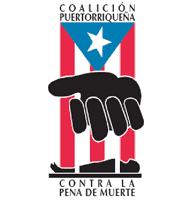
Member(s)
Puerto Rican Coalition Against Death Penalty
on 30 April 2020
The Puerto Rican Coalition against the Death Penalty (PCADP) is a non-party, non-sectarian organisation incorporated in Puerto Rico in March 2005 to promote the elimination of the capital punishment.The PCADP aims to join efforts among the different abolitionist organisations and activists in Puerto Rico. Its Statement of Principles emphasises that it does not believe in […]
2020
Puerto Rico
Document(s)
State-Sanctioned Killing of Sexual Minorities: Looking Beyond the Death Penalty
By Mai Sato, Christopher Alexander - Eleos Justice and Capital Punishment Justice Project, Monash University, on 10 August 2021
2021
Academic report
Australia
Cruel, Inhuman and Degrading Treatment and Punishment
More details See the document
This report examines the extent to which states sanction the killing of sexual minorities. It looks beyond those countries that impose the death penalty for same-sex intimacy to the far greater number of countries in which state actors commission, condone, endorse and enable such killings.
He argues that the state-sanctioned killing of sexual minorities is often perpetrated well beyond the boundaries of the law, and even in countries that do not criminalise such conduct.
- Document type Academic report
- Countries list Australia
- Themes list Cruel, Inhuman and Degrading Treatment and Punishment
Document(s)
Leaflet Women and the Death Penalty
By World coalition against the death penalty, on 2 October 2023
2023
World Coalition
Gender
frMore details Download [ pdf - 1448 Ko ]
- Document type World Coalition
- Themes list Gender
- Available languages Brochure femme et peine de mort
Document(s)
(Not) Talking about Capital Punishment in the Xi Jinping Era
By Tobias Smith, Matthew Robertson and Susan Trevaskes, on 1 September 2022
2022
Academic report
China
More details See the document
An investigation into the death penalty in the People’s Republic of China in the Xi Jinping era (2012–) shows that unlike previous administrations, Xi does not appear to have articulated a signature death penalty policy. Where policy in China is unclear, assessing both the quality and frequency of discourse on the topic can provide evidence regarding an administration’s priorities.
This article was first published in Crime Justice Journal: https://www.crimejusticejournal.com/issue/view/119
- Document type Academic report
- Countries list China

Member(s)
Collectif des Organisations des Jeunes Solidaires (COJESKI)
on 30 April 2020
The Collectif des organisations des jeunes solidaires du Congo-Kinshasa RDC [Collective of Youth Solidarity Organisations in Congo-Kinshasa DRC, COJESKI-RDC] is a platform consisting of 340 youth organisations which has been operating in Congo-Zaire since 1995. Its main aim is to promote and defend positive human values, sustainable development and good governance of the Democratic Republic […]
2020
Democratic Republic of the Congo
Member(s)
Legal Awareness Watch (LAW)
on 30 April 2020
Legal Awareness Watch (LAW) is a nonpartisan, non-profitable NGO registered under law since 1999, holding registration number 1388. Since its creation, LAW has been advocating, and raising awareness in Pakistan on human rights of prisoners in 104 Pakistani prisons i.e. the right to vote, right to dignity, right to life etc. Apart from the promotion […]
Pakistan
Document(s)
The Modern Federal Death Penalty: A Cruel and Unusual Penalty
By Hannah Freedman, on 1 September 2022
2022
Academic report
Cruel, Inhuman and Degrading Treatment and Punishment
United States
More details See the document
The federal death penalty today would be unrecognizable to the founders, who saw the ultimate penalty as a means of protecting sovereign interests and who therefore carefully guarded the practice at English common law of yielding national interests to local ones. Over the course of time, the geographic distribution and substantive basis for the penalty changed, but until the modern era, its underlying purpose did not. As the Trump era executions made painfully clear, however, the federal death penalty today is different. It is disproportionately imposed for crimes that could have readily been prosecuted by other jurisdictions and that have little obvious connection to federal sovereignty, and it is disproportionately imposed against non-white people. By any rational measure, it is vanishingly rare, and it serves no valid penological goal. Simply put, federal death sentences today are, in most cases, “cruel and unusual in the same way that being struck by lightning is cruel and unusual.”
- Document type Academic report
- Countries list United States
- Themes list Cruel, Inhuman and Degrading Treatment and Punishment

Member(s)
International Federation for Human Rights (FIDH)
on 30 April 2020
The International Federation for Human Rights (FIDH)’s mandate is to act effectively to ensure all the rights laid down in the Universal Declaration of Human Rights are respected. These include civil and political rights, as well as economic, social and cultural ones. The FIDH is a federation of 141 leagues in 100 countries. It coordinates […]
2020
France

Member(s)
The Rights Practice
on 30 April 2020
The Rights Practice works to promote and strengthen the protection of human rights. Our work is currently based in China in three programme areas: improving access to justice, strengthening public participation in decision making and promoting dignity of the person. We believe that the death penalty violates the right to life and is the ultimate […]
United Kingdom

Member(s)
Japan Innocence and Death Penalty Research Center
on 30 April 2020
The JIADEP mission is to assist those who have been wrongfully incarcerated and sentenced to death, and to educate the public on the tragedies of criminal justice in Japan by lecturing, writing, and demonstrating.
Japan
Document(s)
Swahili – Ripoti ya kimataifa ya amnesty international: hukumu za kifo na watu walioadhibiwa kifo 2023
on 29 May 2024
2024
NGO report
Trend Towards Abolition
More details Download [ pdf - 1806 Ko ]
Ufuatiliaji wa Amnesty International wa matumizi ya adhabu ya kifo duniani ulibaini watu
1,153 wanaofahamika kuwa walinyongwa mwaka 2023, ambalo ni ongezeko la asilimia
31 kutoka 883 mwaka 2022. Hata hivyo nchi zinazowanyonga watu zilipungua kwa
kiwango kikubwa kutoka 20 mwaka 2022 hadi 16 mwaka 2023
- Document type NGO report
- Themes list Trend Towards Abolition
Document(s)
FHRI and PRI submission to the UN Sec-Gen report on the status of the death penalty in East Africa – Kenya and Uganda April 2012
By Penal Reform International, on 8 September 2020
2020
NGO report
Kenya
More details See the document
To date, Kenya and Uganda have not signed the Second Optional Protocol to the International Covenant on Civil and Political Rights and are not party to any international or regional treaty prohibiting the death penalty. While Kenya abstained from voting in the 2010 UN General Assembly moratorium resolution, Uganda voted against it and signed the note verbale of issociation.
- Document type NGO report
- Countries list Kenya
- Themes list Cruel, Inhuman and Degrading Treatment and Punishment, Discrimination, Country/Regional profiles,
Document(s)
Capital Punishment, 2019 – Statistical Tables
By U.S. Department of Justice Tracy L. Snell, on 10 August 2021
2021
Government body report
Death Row Conditions
Drug Offenses
United States
More details See the document
This report presents statistics on persons who were under sentence of death or were executed in 2019
- Document type Government body report
- Countries list United States
- Themes list Death Row Conditions / Drug Offenses
Document(s)
Children who are Impacted by a Family Member’s Death Sentence or Execution: Information for Mental Health Professionals
By National Child Traumatic Stress Network (NCTSN), Texas after violence project, Clinical and Support Options, on 11 December 2021
2021
Working with...
Juveniles
More details See the document
This tip sheet provides some guidelines for mental health professionals who may encounter or work with children and families related to individuals who have been sentenced to death or executed.
- Document type Working with...
- Themes list Juveniles
Article(s)
China reduces the number of crimes punishable by death to 46, but keeps drug trafficking in the list
By Aurélie Plaçais, on 7 October 2015
China removes nine non-violent and rarely used criminal offenses from capital punishment.
2015
China
Drug Offenses
Document(s)
Facts and Figures 2008
By World Coalition against the death penalty , on 10 October 2008
2008
Campaigning
Trend Towards Abolition
frMore details See the document
Facts and Figures 2008
- Document type Campaigning
- Themes list Trend Towards Abolition
- Available languages Faits et chiffres 2008
Document(s)
Facts and Figures 2022
By the World Coalition Against the Death Penalty, on 24 June 2022
2022
World Coalition
frMore details Download [ pdf - 241 Ko ]
Find the main facts and figures regarding the death penalty worldwide in 2021 and early 2022.
- Document type World Coalition
- Available languages Faits et chiffres 2022
Document(s)
21st World Day – Facts and Figures 2023
By the World Coalition Against the Death Penalty, on 12 June 2023
2023
Campaigning
World Coalition
frMore details Download [ pdf - 239 Ko ]
Find the main facts and figures regarding the death penalty worldwide in 2022 and early 2023.
- Document type Campaigning / World Coalition
- Available languages 21ème Journée Mondiale - Faits et chiffres 2023
Document(s)
International Law and the Death Penalty Guide
By The Death Penalty Project, on 1 November 2022
2022
NGO report
More details See the document
The use of capital punishment has been an issue addressed by international human rights law since the earliest days of the United Nations. The Universal Declaration of Human Rights, adopted by the General Assembly in 1948, and an instrument widely recognised as the gold standard for human rights, affirms the right to life and the prohibition of torture and cruel, inhuman or degrading treatment or punishment. The Death Penalty Project produced this resource on international law and the death penalty.
- Document type NGO report
Document(s)
From seventy-eight to zero: Why executions declined after Taiwan’s democratization
By Fort Fu-Te Liao / Punishment and Society, on 8 September 2020
2020
Article
Taiwan
More details See the document
This article examines, from a legal perspective, why executions in Taiwan declined from 78 in 1990 to zero in 2006. The inquiry focuses on three considerations: the number of laws that authorized employment of the death penalty; the code of criminal procedure; and the manner in which executions were carried out, including the manner in which amnesty was granted. The article argues that the ratification of international covenants and constitutional interpretations did not play a significant role in the decline, and that several factors that did play a role included the annulment or amendment of laws, changes in criminal procedure, establishment of and further amendments to guidelines for execution and two laws for reducing sentences. This article maintains that the absence of executions in 2006 is a unique situation that will not last because some inmates remain on death row, meaning that executions in Taiwan will continue unless the death penalty is abolished. However, the article concludes that the guarantee of the utmost human right, the right to life, can be sustained in Taiwan through the demands of democratic majority rule.
- Document type Article
- Countries list Taiwan
- Themes list Networks,
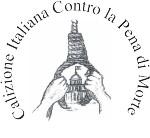
Member(s)
Coalizione italiana contro la pena di morte
on 30 April 2020
The Italian Coalition to Abolish the Death Penalty (ICADP) was established to form a network between both Italian and foreign groups, associations, movements, and individuals that oppose capital punishment, and to coordinate their work and efforts. The ICADP holds talks about the death penalty around the world, spreads information and promotes campaigns. It is especially […]
2020
Italy
Document(s)
The Problem of False Confessions in the Post – DNA World
By Steven A. Drizen / Richard A. Leo / North Carolina Law Review 82(3), 894-1009, on 1 January 2004
2004
Article
United States
More details See the document
In recent years, numerous individuals who confessed to and were convicted of serious felony crimes have been released from prison— some after many years of incarceration—and declared factually innocent, often as a result of DNA tests that were not possible at the time of arrest, prosecution, and conviction. DNA testing has also exonerated numerous individuals who confessed to serious crimes before their cases went to trial. Numerous others have been released from prison and declared factually innocent in cases that did not involve DNA tests, but instead may have occurred because authorities discovered that the crime never occurred or that it was physically impossible for the (wrongly) convicted defendant to have committed the crime, or because the true perpetrator of the crime was identified, apprehended, and convicted. In this Article, we analyze 125 recent cases of proven interrogation-induced false confessions (i.e., cases in which indisputably innocent individuals confessed to crimes they did not commit) and how these cases were treated by officials in the criminal justice system.This Article has three goals. First, we provide and analyze basic demographic, legal, and case-specific descriptive data from these 125 cases. This is significant because this is the largest cohort of interrogation-induced false confession cases ever identified and studied in the research literature. Second, we analyze the role that (false) confession evidence played in these cases and how the defendants in these cases were treated by the criminal justice system. In particular, this Article focuses on how criminal justice officials and triers-of-fact respond to confession evidence, whether it biases their evaluations and overwhelms other evidence (particularly evidence of innocence), and how likely false confessions are to lead to the wrongful arrest, prosecution, conviction, and incarceration of the innocent. Analysis of the aforementioned questions leads to the conclusion that the problem of interrogationinduced false confession in the American criminal justice system is far more significant than previously supposed. Furthermore, the problem of interrogation-induced false confessions has profound implications for the study of miscarriages of justice as well as the proper administration of justice. Third, and finally, this Article suggests that several promising policy reforms, particularly mandatory electronic recording of police interrogations, will minimize the number of false confessions and thereby inject a much needed dose of justice into the American criminal justice system.
- Document type Article
- Countries list United States
- Themes list Due Process , Networks,
Document(s)
Deeply Rooted: How Racial History Informs Oklahoma’s Death Penalty
By Death Penalty Information Center, on 14 October 2022
2022
Article
United States
More details See the document
These individual cases illustrate issues found in systemic reviews of the state’s death penalty system. In 2017, a bipartisan commission that included former prosecutors, defense lawyers, judges, citizens, crime victim advocates, and law professors found that the state’s capital punishment system created “unacceptable risks of inconsistent, discriminatory, and inhumane application of the death penalty.” In an extensively researched report, the commission recommended a moratorium on executions until reforms were made. Five years later, Oklahoma has enacted “virtually none” of the suggested reforms.
- Document type Article
- Countries list United States

Member(s)
Quaker United Nations Office, Geneva
on 30 April 2020
The Quaker United Nations Office (QUNO) serves as a Quaker presence at the United Nations (UN) in Geneva and New York. QUNO represents Quaker concerns at the international level, under the auspices of the Friends World Committee for Consultation (Quakers), the international Quaker body which has General Consultative Status with the UN. In addition to […]
2020
Switzerland
Article(s)
167 Ugandan death row inmates saved from gallows
on 19 September 2010
Recent figures show that a January ruling by the Ugandan supreme court making it illegal to keep people on death row for more than three years has saved 167 lives.
2010
Cruel, Inhuman and Degrading Treatment and Punishment
Uganda
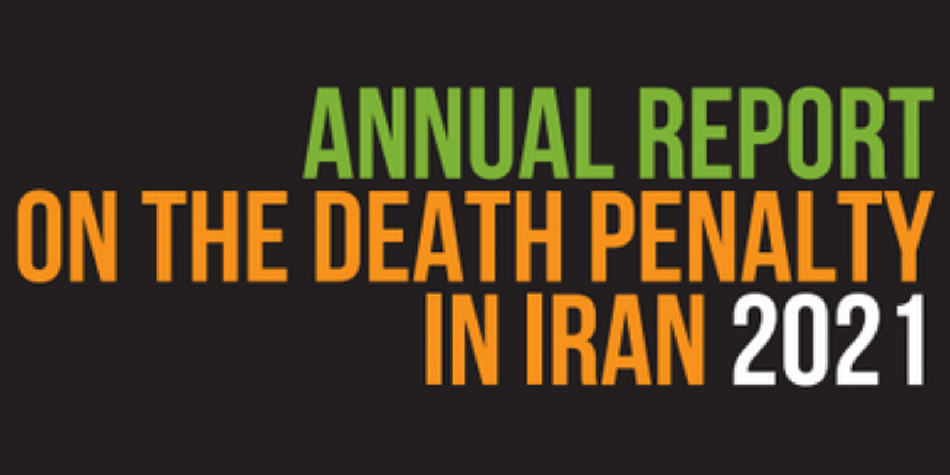
Article(s)
Death Penalty in Iran: Sharp Increase in Executions
By Anissa Aguedal, on 10 June 2022
An alarming situation On 28 April 2022, Iran Human Rights (IHR) and Ensemble contre la peine de mort (ECPM) released their 14th Annual Report on the Death Penalty in Iran, revealing an increase in the number of executions in 2021. At least 333 people were executed and 83,5% of these executions were not announced by […]
2022
Iran (Islamic Republic of)
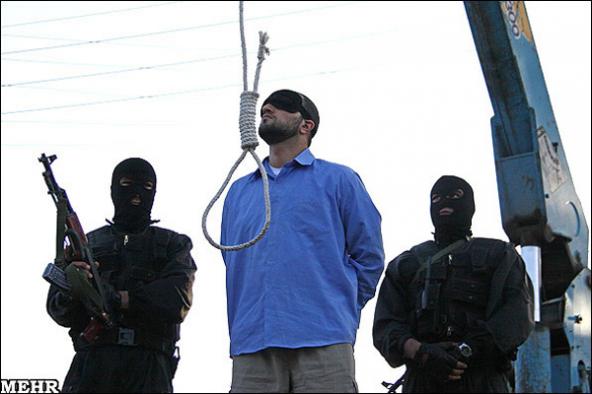
Article(s)
Outrage as Iran’s execution figures explode
on 12 February 2011
Iran hanged 121 people in six weeks between 20 December 2010 and 31 January 2011, many of them after unfair trails and for crimes that did not result in a person’s death.
2011
Drug Offenses
Fair Trial
Iran (Islamic Republic of)
Juveniles
Moratorium
Article(s)
“Young people over 13 will understand”
on 28 February 2010
Wen-Yu Weng (19), a student and debating coach from Thailand who attended the World Congress workshop on educational strategies, thinks young teenagers are mature enough to understand the death penalty debate – just like she did.
2010
Thailand
Document(s)
The death penalty and the prohibition of torture and other cruel, inhuman or degrading treatment or punishment
on 21 August 2021
2021
NGO report
World Coalition
Cruel, Inhuman and Degrading Treatment and Punishment
frMore details See the document
The signatory organizations are convinced that the death penalty is incompatible with the prohibition of torture and cruel, inhuman or degrading treatment or punishment, which is a peremptory norm of international law (jus cogens) and should thus be abolished. The death penalty is only tolerated by international law and standards to the extent that it may only be imposed for the most serious crimes and applied in a way that causes the least possible suffering. However, the signatory organizations believe that from the sentencing to the execution, the death penalty inevitably causes physical harm and psychological suffering amounting to torture or ill-treatments.
The present position paper documents the extent to which international and regional organisation have already recognised a violation of the absolution prohibitionof torture in the application and imposition of the death penalty.
- Document type NGO report / World Coalition
- Themes list Cruel, Inhuman and Degrading Treatment and Punishment
- Available languages La peine de mort et l'interdiction de la torture et des peines ou traitements cruels, inhumains ou dégradants
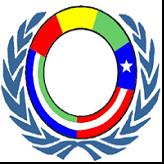
Member(s)
Society for Human Rights and Development Organisation (SHRDO)
on 30 April 2020
The Society for Human Rights and Development Organisation (SHRDO) – Formally MRU youth parliament – purpose is for peace & development and its activities are base on Sub Regional Peace Consolidations, Peace Promotion & Peace Maintenance across Sierra Leone, Liberia, Guinea & Ivory Coast by the Youngsters/ Youth Leaders themselves that agitates for regional reintegration, […]
2020
Sierra Leone
Document(s)
Isolation and desolation conditions of detention of people sentenced to death Malaysia
By Carole Berrih, Ngeow Chow Ying, ECPM, ADPAN, on 27 May 2021
2021
NGO report
Death Row Conditions
Malaysia
frMore details See the document
Isolation and Desolation – Conditions of Detention of People Sentenced to Death in Malaysia is the first ever fact-finding mission report on the conditions of detention of death row prisoners in Malaysia.
It examines the use of death penalty in Malaysia as well as the actual situation of people on death row.
This report is not meant to point fingers but rather to put the facts on the table in a transparent manner and work from there. It is mainly an advocacy tool for all abolitionist stakeholders, from civil society actors to the parliamentarians who will keep fighting for the abolition of the death penalty.
- Document type NGO report
- Countries list Malaysia
- Themes list Death Row Conditions
- Available languages Isolement et désespoir conditions de détention des condamnés à mort Malaisie
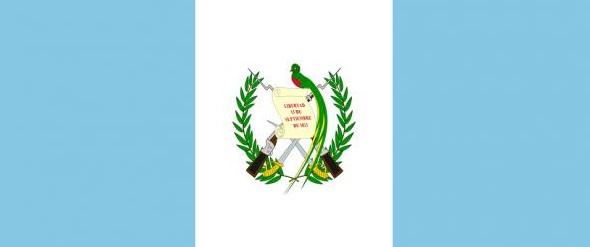
Article(s)
Guatemala abolishes the death penalty for ordinary crimes
By World Coalition Against the Death Penalty, on 31 October 2017
On October 24, the Constitutional Court of Guatemala has abolished the death penalty in civil cases.
2017
Guatemala
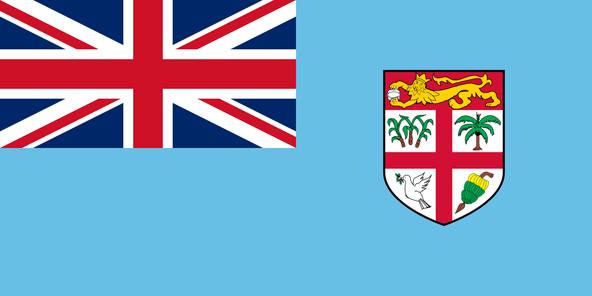
Article(s)
Fiji abolishes death penalty for all crimes through amendment to military law
By Auréie Plaçais, on 23 February 2015
On 9 February 2015, Attorney General Aiyaz Sayed-Khaiyum introduced in parliament the Republic of Fiji Military Forces amended Bill 2015, a one page bill to abolish the death penalty provision.
2015
Fiji
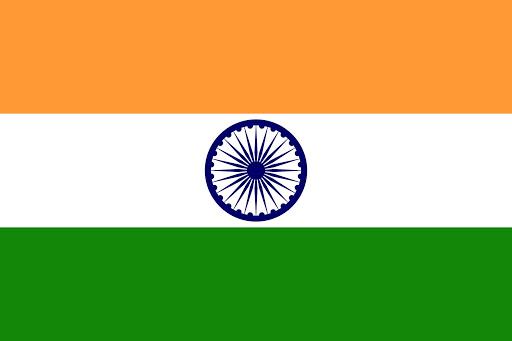
Article(s)
Punishing Sex Crimes: The Evolution of the Death Penalty in India
By Hédia Zaalouni, on 21 April 2020
The Death Penalty in India: Annual Statistics, an annual report published in January 2020 by Project 39A, details the application of the death penalty in India during the year 2019. It also describes developments in criminal justice and policy in the country.
2020
India
Article(s)
ICC paves the way for justice without killing
on 18 July 2009
The University of Kinshasa has hosted a conference on the theme of death penalty-free justice to celebrate the 11th anniversary of the Rome Statute, which established the International Criminal Court.
2009
Democratic Republic of the Congo
Member(s)
Mouvance des Abolitionnistes du Congo Brazzaville
on 30 April 2020
Mandate and Objectives: – Promote fundamental human rights : LIFE , EDUCATION, ACCESS TO WATER AND ELECTRICITY – Making human rights in daily lives – Fighting for universal abolition of the death penalty, starting in Congo Brazzaville by a national moratorium Types of action: – Exhibitions and screenings – Lectures, discussion and citizen petition, Sit-in […]
2020
Congo

Member(s)
Comité des Observateurs des Droits de l’Homme (CODHO)
on 30 April 2020
On 1 July 1997 a group of lawyers, economists and political scientists from the Democratic Republic of Congo (DRC) held a meeting following the massacre of children by militiamen in North Kivu in the east of the country. Revolted by this unspoken tragedy, they decided to set up the Committee of Human Rights Monitors (Codho). […]
Democratic Republic of the Congo
Document(s)
Experimenting with Death: An Examination of Colorado’s Use of the Three-Judge Panel in Capital Sentencing
By Lutz, Robin / University of Colorado Law Review, on 1 January 2002
2002
Article
United States
More details See the document
Mr. Page committed an atrocious crime. He did not know his victim, Peyton Tuthill, a young woman who had recently graduated from college and moved to Denver. But he was in her house, looking for money and items to sell, when she returned from a job interview. Instead of leaving her home, Mr. Page stayed to beat Peyton Tuthill, tie her up, stab her, slit her throat, rape her repeatedly, and eventually, kill her. Clearly, Ms. Tuthill did not deserve to die such a tortured death. Clearly, her death resulted from an egregious crime. However, the answer to the question of whether Mr. Page should be executed for committing this murder is not as clear. Some would answer affirmatively, others negatively. An important question is: who should decide?
- Document type Article
- Countries list United States
- Themes list Networks,

